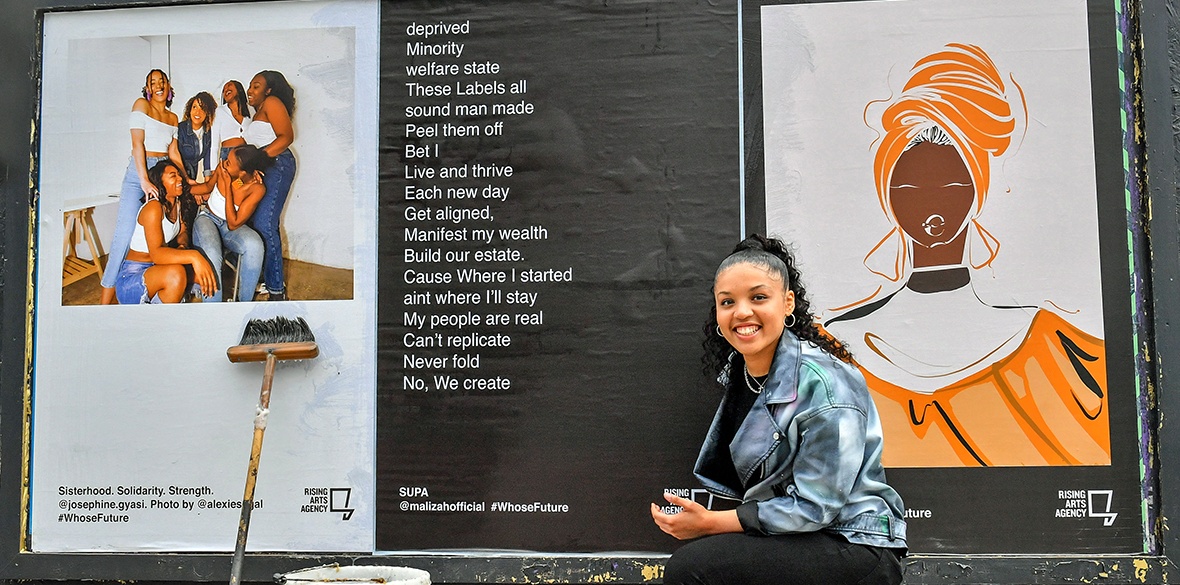This is the last article you can read this month
You can read more article this month
You can read more articles this month
Sorry your limit is up for this month
Reset on:
Please help support the Morning Star by subscribing here
EVERYONE, from practitioners to pundits, has an opinion and it’s the same: poetry is a “contemplative” form, productive of comfort and of empathy — what poetry does singularly well is negotiate between subjective feeling and mass social concern.
True, but whether contemplation is likely to provide solace or further empathy rather depends on what you’re being asked to contemplate.
And while we might be equally involved in global events we are not all equally affected by them. The virus does not discriminate. Humans do.
This is where our current definitions of poetry fail in the face of a disparity so great it can never quite be broached.
An Office for National Statistics report says that there are 55 deaths for every 100,000 people in the poorest parts of England compared with 25 in the wealthier areas.
For black and ethnic minority communities the situation is even bleaker.
Class dictates which of us will feel the effects of coronavirus the deepest and who will be left to endure its legacy the longest. Under such conditions, what should poetry do or be?
Poetry does not stand outside capitalism’s brutalising power structures speaking in. It is enmeshed and beholden to those structures and it is subject to and scarred by them.
Artists are also workers: art is work and the large majority of us do other jobs to support ourselves and our families.
When the welfare state is failed by government, it fails us too, when jobs are cut, they’re our jobs too.
The idea that art is an adequate salve to these wounds is ludicrous.
“Feeling better” should not replace collective, active and organised social change.
This is the limit and the danger of “consolation”: we shouldn’t have to find ways to cope with an unacceptable situation, pressure should be applied to those who engineered it.
Catharsis is ripe for exploitation. The deep swell of feeling a poem prompts may seem profound, momentous even, but it is interior, entirely subjective, the opposite of true sympathy, true solidarity.
This kind of poetry, and the idea that it connects people through some golden thread of fellow feeling, conceals the fatal extent of the inequality existing between us.
Catharsis makes a fetish of working-class resilience. It ties that suffering to a marketable performance of identity, where your pain has meaning and value only in so far as it elicits a profound emotional response in your audience.
Writing the poem may help us but its efficacy in challenging the attitudes and conditions that produce those feelings is limited.
I live — we live — a continual, exhausting negotiation with and within language, with and within capitalism.
Our use of language is both an organic response and a purposeful riposte to the non-language of bureaucracy, the populist sloganeering of governments and the reductive stereotyping of the mainstream media.
I want to fight back against the misuse of the lyric, against the easy absorption it sometimes fosters.
Capitalism uses ease of assimilation to slide its most toxic messages past us on the sly.
Those are the enemy’s tactics. Our poetry must do more.
If the state were a body, then poetry should tell us where it hurts, to keep pointing to the sites of failure and neglect and saying: “Look! Listen!”
They don’t listen. If they did, funding bodies and publishers would have already moved past the tokenistic representational model of working-class inclusion to make real changes to the way in which financial support for artists is allocated and accessed.
Applying for assistance, before coronavirus and during, is a bewildering process. Many give up. In poverty you’re asked to account for yourself in a variety of ways every day, just to access what you need to survive.
We live with a level of scrutiny and required “proof” that is intrusive and stressful.
Impenetrable bureaucratic processes are not helpful. Funding bodies frequently assume a familiarity with their processes but often people are unaware of what’s out there, what they’re “entitled” to.
And there are talented artists who don’t have the vocabulary to present the “best case” for their vibrant and necessary work.
Who, among the working-classes, can afford to expend time and attention on a process they feel sure will fail?
Attention to diversity means reaching out and talking about the opportunities for disadvantaged artists with those artists. Regularly. Systematically. People new to funding processes may have no previous experience navigating systems and it is about making space for them, even if their work does not conform to some preconceived idea of how a working-class person writes or sounds.
It means recognising that a middle-class audience is not the default. It means making money available to art forms the working class can actually practice.
To occupy the same spaces as our middle-class peers we are performing a phenomenal amount of extra labour and it’s labour we shouldn’t have to perform. But if we do, if this is really the best system our cultural gatekeepers can come up with, then we should be allowed to be angry.
The idea that art should or indeed can be apolitical is patently ridiculous and it’s a fiction that serves those already comfortably ensconced in places of privilege.












